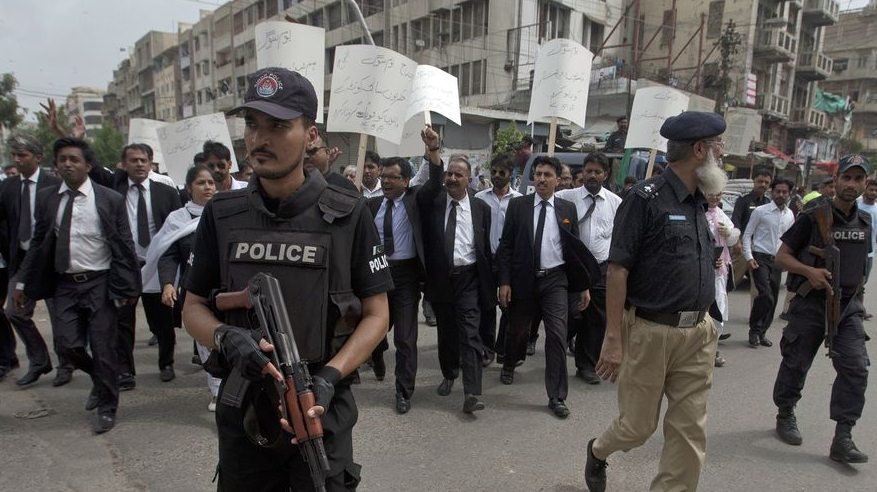
Pakistan's law minister resigned Monday as the embattled government bowed to demands from a small Islamist group whose anti-blasphemy protest in the capital has fueled deadly violence and sparked demonstrations across the nation.
Protest leader Khadim Hussain Rizvi called off the sit-in after state media reported minister Zahid Hamid's resignation early Monday. Rizvi said he had military assurances that the demands of his Tehreek-i-Labaik Ya Rasool Allah Pakistan (TLY) group would be met.
"On the assurance of the Chief of Army Staff, we are calling off the sit-in," he told a crowd of around 2,500 demonstrators, adding that his group was abandoning plans to issue a fatwa against Hamid and was calling for roads and schools to be reopened.
There was no immediate confirmation from the government of the resignation and no comment from the military.
Rizvi's previously obscure group has been calling for weeks for Hamid's ousting over a hastily-abandoned amendment to the oath which election candidates must swear. It has occupied a main highway into Islamabad since November 6 and virtually paralysed the capital.
The protesters have linked the amended wording to blasphemy - a highly contentious charge in Muslim Pakistan which carries the death penalty. Even unproven allegations have spurred mob lynchings and murders.
Monday's announcement came after Saturday's botched operation to disperse the demonstrators sparked violence in Islamabad that left at least seven people dead and hundreds wounded.
It fueled the spread of the protests and blockades to major cities across the country including Karachi and Lahore.
The government ordered police and paramilitaries to stand down after the clashes and called on the army to intervene to restore order. By Monday morning there still had been no official response from the military.
As he called off the sit-in, Rizvi referred to what he said was the text of an army-brokered agreement between TLY and the government, though the document could not be verified with officials or the military.
"We all now need to heal the fault lines that dharna [sit-in] has invoked on religious & sectarian basis & ensure it doesn't reoccur. It is a priority," tweeted Interior Minister Ahsan Iqbal, without further details.
Pakistan's government has long pulled its punches in such situations, fearing that a crackdown on a religious group would incite blowback. Critics have warned that this attitude allows extremism to flourish.
But as the weeks dragged on the hesitation enraged millions of commuters in Islamabad and neighboring Rawalpindi. The demonstration caused hours-long traffic snarls and the death of at least one child whose ambulance could not reach hospital in time.
TLY comes from the Barelvi sect of Islam that has strong ties to Sufism, a mystical branch of the religion seen as moderate. It emphasizes personal devotion to the Prophet Mohammed.


